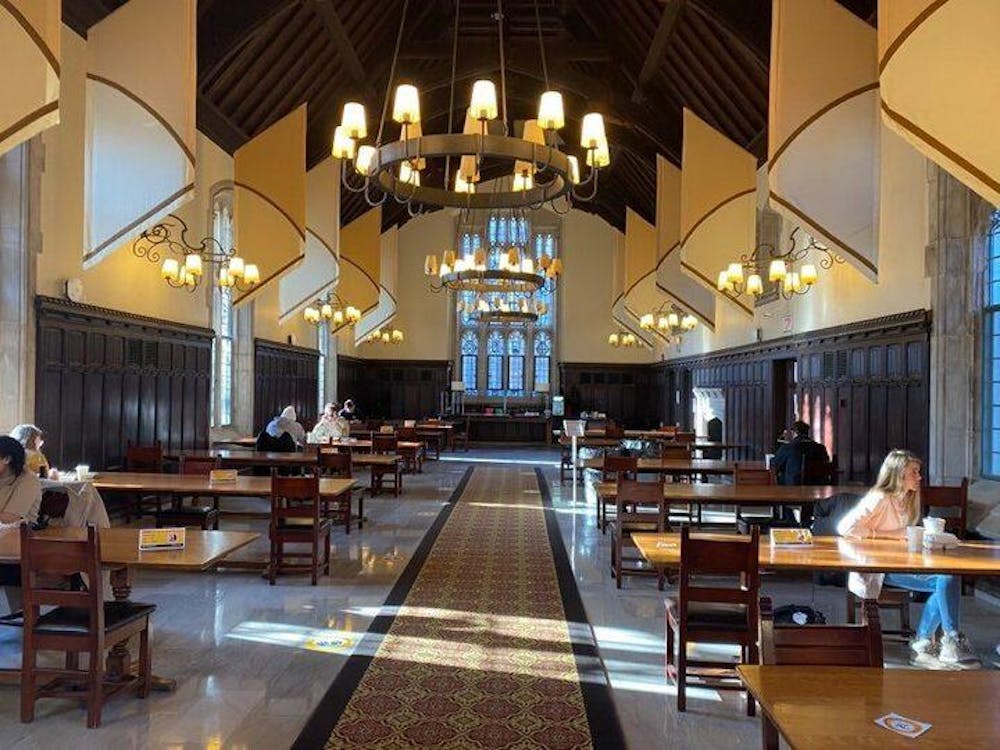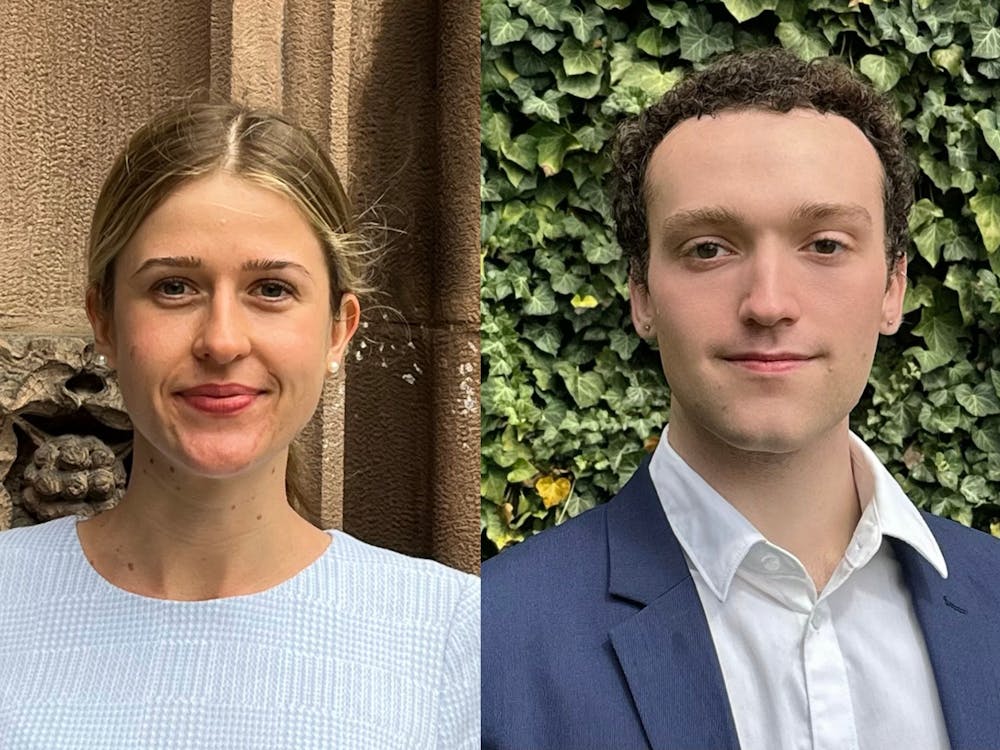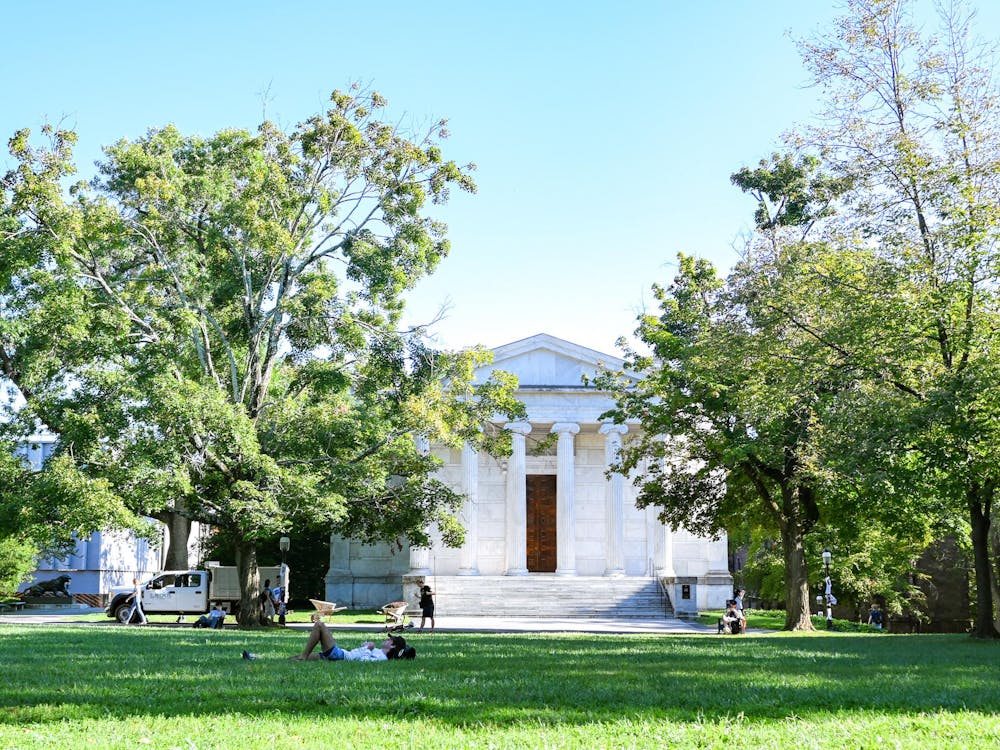While neuroscience formerly examined diseases on an individual basis, new research reflects an increasingly holistic approach to mental processes, as evidenced by President Obama’s Brain Research through Advancing Innovative Neurotechnologies Initiative, New York University Director of Bioethics Program Matthew Liao ’94 said at a Reunions panel titled “Where Will Neuroscience Take Us?”
He noted that broader thinking generates new solutions. For example, the Defense Advanced Research Projects Agency is developing deep brain stimulators to address post-traumatic stress disorder, a condition common among veterans.
“By monitoring the brain in real time and intervening when necessary, DBS+ has the potential to be more precise and efficient while having fewer side effects,” he said.
The holistic trend in the discipline could help treat autism, which, unlike most neurobiological disorders, lacks a clear biomarker to indicate its presence, according to neuroscience Stanford Ph.D. candidate Daniel O’Shea ’09.
“These more powerful approaches to look at the brain as a whole and to look at the detailed connectivity will hopefully provide a lot more leverage into the disease,” he explained. O’Shea added that the BRAIN Initiative is focusing on developing therapies from animal models, despite the limitations of comparing human brains to those of simpler organisms such as mice.
The widening scope of neuroscience includes collaboration with experts in other scientific and engineering fields to understand the mind and brain, according to Princeton Neuroscience Institute codirector and psychology professor Jonathan Cohen, who moderated the discussion.
“One of the biggest advances is the ability to image the human brain while it’s doing tasks that are uniquely human,” he said. “You know, doing mental arithmetic, considering a moral problem, responding emotionally to a stimulus, and doing this literally without so much as a pinprick.”
Improvements in technology have allowed neuroscientists to learn about the brain at a deeper level and test ideas that previously remained correlational or observational rather than experimental, according to O'Shea.
He expressed optimism for the field’s ability to treat more mental disorders, which Cohen said will surpass all other forms of physical disease as the primary cause of disability by 2020, according to the World Health Organization.
Cohen noted that neuroscience has made contact with not only other technical disciplines, but also all humanities and social sciences dealing with human behavior. He cited the emergence of new subfields such as neuroeconomics and neurolaw.
Patrice McConnell Cromwell ’84, Annie E. Casey Foundation director of economic development and integration initiatives, praised the impact of neuroscience research on reducing poverty in the United States. Social sector workers used to focus on the first five years of a person's life as the most important in personal development, but she said that recent findings on brain elasticity have shown a period of accelerated growth from ages 15 to 25.
“For us, as we think about investing in how to build better futures for low-income kids and parents, there is an opportunity to relearn, to develop new skills, that perhaps we didn’t think about earlier,” Cromwell said.

Because research shows that poverty damages the executive function of the brain, Cromwell’s organization has developed curriculum and tools to reteach executive function skills, which include memory, planning and impulse control. Young mothers participate in the program to improve as parents and workers.
Despite the excitement of developments in neuroscience, Cohen reminded the audience that current progress might take several generations to tangibly benefit the world.
“This is a remarkably challenging endeavor, and we’re really not going to understand how the human brain works at the level that we would like to be able to solve all the problems that we face from schizophrenia and Alzheimer’s, to social inequality, for many decades to come,” he said. “You’re asking me when are we going to get to the moon, and we haven’t even invented rocket science yet.”
Sponsored by the Alumni Association of Princeton University, the discussion took place in Princeton Neuroscience Institute A32 at 10:30 a.m.








